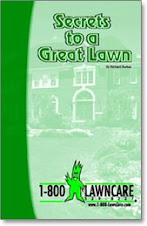
"Armyworms are actually the caterpillar life stage of a moth. Their eggs masses which may contain several hundred new worms are deposited on or near plant foods. Each female may deposit several of these clusters. The caterpillar that hatches from the egg is only about one-eighth inch long, but when it is full grown, it reaches a length of about two inches. The caterpillars, usually feed at night and hide in plant litter just above the soil surface during the day. These moth larvae chew off the grass blades above the soil surface. If there is a major infestation, the grass is eaten to the soil level.
A frost may kill the larvae off, however inspection of areas where armyworms are likely to be found is advisable so that treatment can be applied before serious plant damage occurs and the larvae mature. Although the moths do no damage to plants, they will continue their life cycle and produce thousands of new worms."
Many do it yourself labels advocate only one application without much need for additional treatments, however the best course of action is to allow a trained technician or licensed applicator apply the appropriate chemical, to rid your yard of this seasonal pest, call Lawntech today. If you choose to try and fix the problem yourself and if the infestation is out of control (five or more per square yard) and chemical control becomes necessary, recommended insecticides containing chlorpyrifos, diazinon, Orthene, or Sevin should be applied. Please call Lawntech today @ 972-346-2696 for worry free applications done right.
Reference Cited: http://www.thegardenhelper.com/armyworm.html






No comments:
Post a Comment